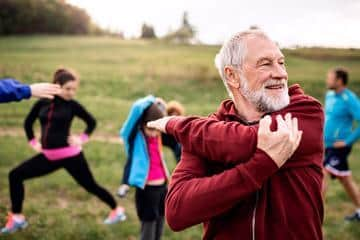Dr's Casebook: Recent research shows the less you do the harder it gets
and live on Freeview channel 276
Dr Keith Souter writes: It has quite a profound effect on the body by virtue of what it does to the metabolism and how it makes you feel.
However, when people stop exercising for a length of time they often find it hard to start again.
Advertisement
Hide AdAdvertisement
Hide AdIt just seems too difficult, as if their stamina, inclination and ability to excise has disappeared.


Recent research from the University of Leeds has been published in the Journal of Clinical Investigation, which suggests that there is a physiological reason for this.
Literally, the less exercise you do, the harder it gets to start again.
They showed that doing less exercise deactivates a vital protein in the body, and this tends to produce further inactivity so that exercise becomes difficult.
Advertisement
Hide AdAdvertisement
Hide AdThis is a very important finding, because this is what happens as obesity develops.
The exercise that will counter the weight gain gets harder and the tendency is to do less.
There is also a tendency as one gets older to think that the time for exercise is past and that it is time to put the feet up.
The researchers discovered that deactivating a specific protein called Piezo 1, which is known to be a blood flow sensor, reduces the blood flow through capillaries to the muscles.
Advertisement
Hide AdAdvertisement
Hide AdIt is this restriction in blood flow that makes activity more difficult and can lead to further inactivity.
The University of Leeds carried out the research on mice, looking at the Piezo1 protein levels.
This protein is also found in humans and is thought to have the same effect.
Two groups of mice were compared, one group who had been inactive and whose Piezo1 levels had been disrupted for ten weeks, the other being a control group.
Advertisement
Hide AdAdvertisement
Hide AdWalking, climbing and running wheel activity was observed in both groups of mice.
The Piezo1 mice showed a significant reduction in activity levels, which suggests the important role that Piezo1 has in maintaining normal physical activity.
Although both groups undertook exercise, it was clear that the Piezo group had a lowered ability to exercise.
So, there does seem to be a reason why doing less makes exercise harder to start.
But you can get over it, which suggests truth in the old adage no pain, no gain.